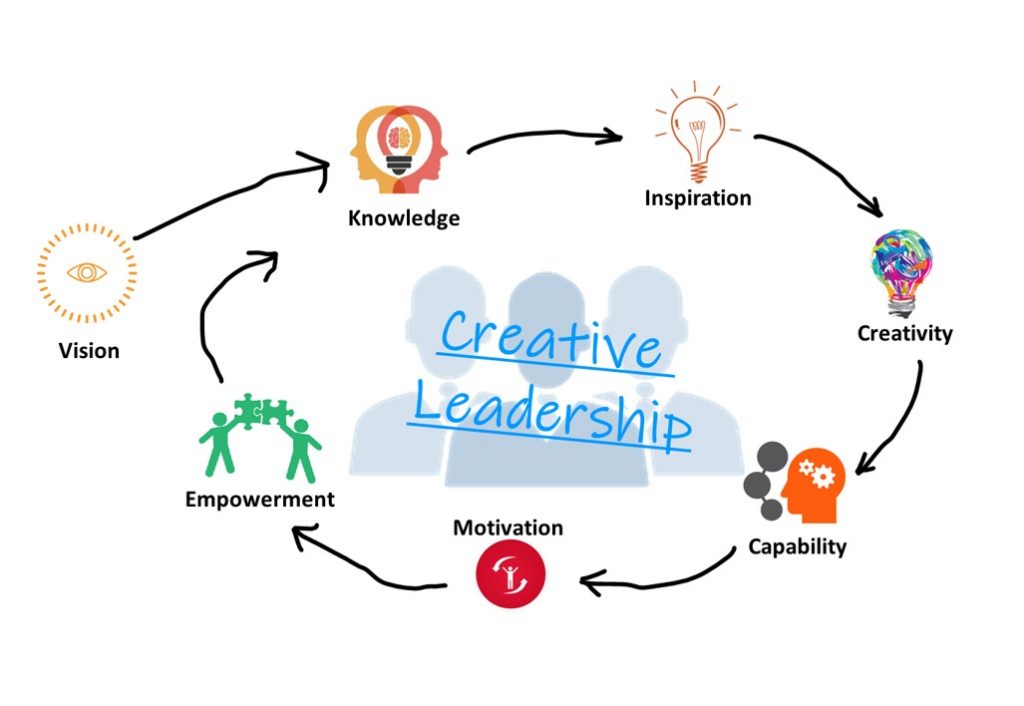Education & Career Trends: December 16
Curated by the Knowledge Team of ICS Career GPS

- Experts are taken from an article published on psychologytoday.com.
In management research, the most cutting-edge prescription for companies that somehow find themselves blessed with a culture supporting innovation is simply to nurture it. In other words, the best advice we have is “not sure how this happened, or how to replicate it, so don’t mess it up!”
While many leaders claim to value creativity as an objective for their team or organisation, they more often than not reject creative ideas and creative people when they encounter them.
Here are four steps leaders can take to support more creative outcomes:
1. View those you are leading as partners
Most creative people have an instinctual aversion to being controlled. They don’t want to feel like they are being managed even if the intentions are noble. Instead, they want to be partners in co-creation. They want empowering relationships, where they can feel comfortable bringing their whole selves to the project, with trust, openness, and vulnerability.
Consequently, a helpful reframing might be to view leading exclusively as a verb and not a noun. Power exchanges are relational and dynamic. Creative folks will, at times, follow your leadership, but leaders must continually adapt to changing demands in the relationship and never rest on hierarchical authority.
2. Really listen when you lead
The second step is an extension of the first. Once you accept that your leadership is contingent and dynamic, it becomes critical to be constantly attuned to the messaging of your partners. Unfortunately, traditional conceptions of management too often envision scenarios where leaders play a far more active role in conversational exchanges than partners lower down in the hierarchy. It is of fundamental importance that both parties be equally engaged.
To lead for creative outcomes is to foster exchanges where it is not just the speaker who is in an active state of engagement. The interlocutor is engaged in active listening, where they listen in a way that is quite different from what we are used to. Many of us assume to have mastered the skill of assimilating aural stimuli as children, often equating hearing with listening. Leading is a collaborative endeavour driven by both the individual who is speaking and the listener who is processing the ideas of the speaker. The listener is always ready to challenge the speaker, not out of hostility but out of trust and respect for the work necessary to achieve the optimal outcome of creativity.
3. See your task as actualizing potential
Most prescriptive business advice seems to direct attention to the role current stakeholders can play in helping us achieve our goals. Leaders are instructed to focus on what is in front of them: the needs of existing shareholders, customers, suppliers, co-workers, etc. Creative leadership turns attention to that which is in a state of potential: future customers, prospective colleagues, unrealized innovations, and new alliances.
Creativity demands conflict and discomfort. Leaders must signal that the work of actualizing potential is not antithetical to feeling safe. This requires building trust with our co-creative partners and letting them know that we have their best interests at heart, even as we challenge them to do something novel. The optimal outcome is an environment where everybody is willing to take responsibility for what they do, taking risks and owning the consequences.
4. Trust your intuition
Cutting-edge research seems to demonstrate that the decision to engage in cooperative behaviour stems primarily from intuition. We do not cooperate because a leader or manager told us to, or because we engaged in a situational analysis and came to the rational conclusion that the optimal path is cooperation. We offer our cooperation when there is the possibility of building longer-term relationships with real human beings who are signalling an interest in something bigger than themselves.
Boosting reliance on intuition as opposed to rational deliberation should mean increased cooperation and opening the door to more creative efforts. Rational deliberation has been shown to only reduce cooperation in social dilemmas, not increase it. While it may have become something of a cliché to say it, leading with and from the heart is more likely to result in creative outcomes than making a rational case.
…
Read our previous blog
Mentoring in the Modern World
(Disclaimer: The opinions expressed in the article mentioned above are those of the author(s). They do not purport to reflect the opinions or views of ICS Career GPS or its staff.)
Like this post? For more such helpful articles, click on the button below and subscribe FREE to our blog.



